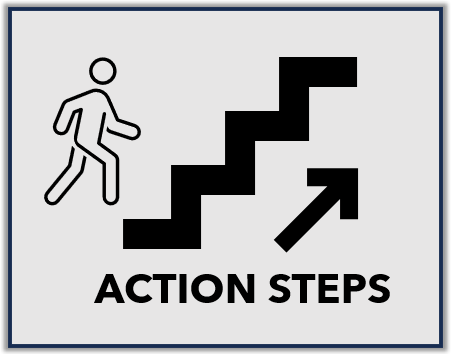Welcome from JustCoachMD. We are happy to have you on board and look forward to providing you with helpful content.
Here is what to expect:
Coaching Craft: Coach Wellbeing and Mental Health.
Full 60-Minute Practice: Scanning and Awareness.
Coach Project: Develop a Wellness Plan.
“In the end, the most important thing is to be at peace with yourself.”- Carlo Ancelotti
From Burnout to Balance: Simple Steps Every Coach Needs for Better Mental Health
Coaching can be exhilarating, but it’s also one of the most high-pressure jobs. Long hours, endless planning, and the constant drive for results can lead to burnout. But it doesn’t have to be that way.
To be the best for your players, you must first take care of yourself. In this edition, we’ll share practical tips to help you manage stress, stay grounded, and carve out time for what matters most—your well-being and your family.
Here are 7 tips that can help football coaches maintain their mental health, find balance, and be more present:
Set Boundaries: Clearly define your working and off-duty patterns. Avoid taking work calls or answering emails during family time. This helps you switch off and be fully present in your personal life.
Delegate and Trust Your Team: Use your coaching staff to share the load. Trusting others with responsibilities allows you to take mental breaks and prevents burnout from trying to do everything yourself.
Schedule “Me Time”: Just as you schedule practices, set aside time for yourself. Whether it’s exercise, a hobby, or simply reading, having time to recharge is essential for mental well-being.
Prioritise Physical Health: A healthy body supports a healthy mind. Regular exercise, adequate sleep, and a balanced diet can make a huge difference in how you manage stress and your overall mental clarity.
Practice Mindfulness and Meditation: Mindfulness techniques can help coaches stay focused and grounded. Regular meditation, even for just 10 minutes a day, can reduce stress and improve mental resilience. The 4-7-8 breathing technique is a great place to start.
Communicate with Family: Keep an open line of communication with your loved ones about your schedule and the demands of your job. Regular check-ins help you stay connected and ensure that time spent together is meaningful.
Seek Support from Fellow Coaches: Coaching can sometimes be an isolating role. Reach out to fellow coaches for advice, support, or even just to chat. Having a peer group that understands your challenges can help relieve stress and provide valuable perspective.
7 Actionable Tips to Improve Mental Health
Here are actionable steps that football coaches can implement to improve their mental health, balance, and presence in their lives:
Establish Non-Negotiable Boundaries: Set specific work hours and communicate them with your team and family. Use “Do Not Disturb” modes on your phone or computer outside these hours. Leave work materials (laptop, notes) in your office or designated workspace to prevent blending work and home life.
Delegate Tasks Each Week: At the start of the week, identify 1-2 tasks that can be handled by assistant coaches or other staff. Create a system for tracking and following up on delegated responsibilities without micromanaging. Rotate different tasks among your coaching team to build trust and confidence in their abilities.
Block Time for Yourself on the Calendar: Schedule 30 minutes to 1 hour of personal time daily (e.g., for exercise, reading, or relaxation). Treat this time like a meeting—non-negotiable and important. Start with something simple, like a morning routine or a short walk after practice, and build from there.
Prioritise Physical Health Daily: Set a personal health goal, such as a daily step count or committing to three workouts a week. Create a wind-down routine to ensure you get 7-8 hours of sleep each night. Prepare healthy meals or snacks in advance, reducing the temptation to eat poorly when busy.
Incorporate Mindfulness or Meditation: Try a 10-minute mindfulness app (like Headspace or Calm) to build meditation into your daily routine. Here is a link to a 5-minute breathing exercise. 4-7-8 Breathing
Plan Weekly Family Check-Ins: Set aside 15-30 minutes once a week to check in with your family about their schedules and yours. Plan dedicated family time, such as a weekly dinner, game night, or outing where work is not discussed.
Build a Support Network of Coaches: Reach out to fellow coaches and set up regular informal meetups (online or in-person) to discuss challenges and share advice. Join coaching forums or groups where you can exchange ideas and support. Consider a mentor or peer group to help you navigate difficult situations and maintain perspective.
These steps are designed to fit easily into a busy coaching schedule, ensuring that coaches can be more present both on and off the field.
“Success is peace of mind, which is a direct result of self-satisfaction in knowing you did your best to become the best that you are capable of becoming.” - John Wooden
Full Practice:
Rondo Practice | 4v2 | Scanning and Perception
⚽️ Created On: @SSPlanner
Aim:
Develop perception of surroundings.
Set-Up:
12 by 12 box split into quarters, plus a 2-yard shaded zone (Orange)
👕 Teams: ⚫️ Possession team, 🔴 Defending team
How to Play:
⚫️s connect passes to score, by finding their spare players ( 5 is a goal)
⚫️s try to change quarters following each pass.
🔴s win possession and escape into the shaded zones.
⚫️s are fixed into a quarter when 🔴s win the ball.
🚧 Constraints:
🏆Reward: Three one-touch passes is a double goal (must keep the ball, has to involve three players)
👨🏫 Review: Quality of pass, stay on the ball or share it.
🚫 Restriction: Touch limit for the possession team.
5v3 | Scanning and Perception | Possession Practice
⚽️ Created On: @SSPlanner
Aim:
Awareness of when to play through and when to sustain possession of the ball.
Set-Up:
30 by 20 space split into 6 grids plus a 4-yard shaded zone centrally.
👕 Teams: ⚫️ Possession Team, 🔴 Defending Team
How to Play:
⚫️s score by passing in and then out of the central shaded zone or connecting 5 passes.
🔴s regain the ball and score in any mini goal. If they dribble over the end line and score it’s worth two goals.
⚫️s have 3 seconds in the central zone and have to get out, 🔴s cannot enter the central zone (orange).
⚫️s cannot track 🔴s over the end line
🚧 Constraints:
🏆Reward: ⚫️s double goals if they play 1st time out of the central zone.
👨🏫 Review: Quality of pass, timing of movements, awareness of next pass.
🚫 Restriction: It has to be a first-time pass into and out of the central zone.
3v3 (+2) | Forward Passing and Support | SSG
⚽️ Created On: @SSPlanner
Aim:
Spotting opportunities to pass forward and play through pressure.
Set-Up:
30 by 20 spaces with a pair of mini goals offset by around 4 yards at each end of the pitch.
Split the field into 6 x grids
👕 Teams: ⚫️ Attacking and Defending, 🔴 Attacking and Defending, 🟡 Target players for each team.
How to Play:
In attack, play off the target 🟡 and finish into the mini goal.
In defence, try to cover the three grids that are near and next to the ball for compactness.
🚧 Constraints:
🏆Reward: Three one-touch passes and a finish equals double goals.
👨🏫 Review: The decision to pass forward or retain the ball.
🚫 Restriction: Touch limits in the final third (2 or 1 touch)
"The experience of a professional footballer, coach, or manager is complex and often overwhelming. Keeping perspective is important.”- Sir Alex Ferguson
Coach Project
Objective:
Help football coaches create a balanced routine that incorporates advice on mental health, presence, and personal well-being, while still fulfilling their professional responsibilities.
Task Instructions:
It’s recommended to choose the most important one to three topics and work through the bullet points to enhance the quality of your current routine.
Set Boundaries Between Work and Personal Life
Outcome: You will create a daily schedule that includes defined work hours and dedicated family or personal time.
Identify your core work hours and communicate them to family and staff.
Set “off” hours where you do not check emails, or phone calls, or engage in work-related activities.
Define a physical space at home where you will do all your work, avoiding work in other areas like the bedroom or living room.
Create a “Me Time” Routine
Outcome: You will implement a routine that includes time dedicated to your hobbies, relaxation, or personal development.
Block 30-60 minutes a day on your calendar for an activity that rejuvenates you (e.g., reading, walking, meditating).
Choose a daily or weekly ritual (e.g., morning coffee, or an evening walk) that helps you switch gears between work and home.
Make this routine non-negotiable, treating it as a priority similar to a training session.
Develop a Physical Health Plan
Outcome: You will maintain physical health to support mental clarity and reduce stress
Schedule 3-4 weekly physical activities that suit your lifestyle (e.g., running, gym, yoga, sports).
Track your sleep to ensure you’re getting 7-8 hours each night.
Plan meals ahead of time and include healthy snacks during busy periods to sustain energy.
Practice Mindfulness Daily
Outcome: You will develop the habit of mindfulness to stay grounded and manage stress.
Dedicate 5-10 minutes daily to practice mindfulness or meditation using an app (e.g., Calm, Headspace).
Incorporate breathing exercises or short mental breaks during the day, especially during stressful moments like before a game.
Reflect on a daily experience (e.g., a game or training session) with a focus on what went well, practising gratitude.
Improve Communication with Family
Outcome: You will improve communication to strengthen family relationships and plan shared time.
Schedule weekly family check-ins to align schedules and discuss how everyone is doing.
Plan one family activity or outing each week (e.g., family dinner, walk, movie night) without distractions.
Share your work schedule and challenges openly with your family to develop understanding.
Build a Support Network of Fellow Coaches
Outcome: You will create a support system with other coaches to share ideas, advice, and personal challenges.
Reach out to 2-3 coaching peers to set up regular catch-ups (either online or in-person).
Join a coaching forum or community (online or offline) to exchange ideas, seek advice, and give support.
Attend at least one coaching or personal development event per month to build relationships and gain new perspectives.
Reflection Questions:
How does your current routine support your well-being, and where could you improve?
What obstacles do you foresee in creating boundaries between work and personal life, and how can you address them?
After implementing your new routine for a week, how do you feel both mentally and physically?
Please feel free to get in touch or share your ideas, actions, and interventions. We would love to hear from you. If you have any questions, post them here; we will do our best to answer them.
I send this email weekly. If you would like to receive it, why not join a community of like-minded people who love the game of soccer?
Enjoyed reading this post, feel free to share it with your friends! Or click the button below so more people can discover us.









